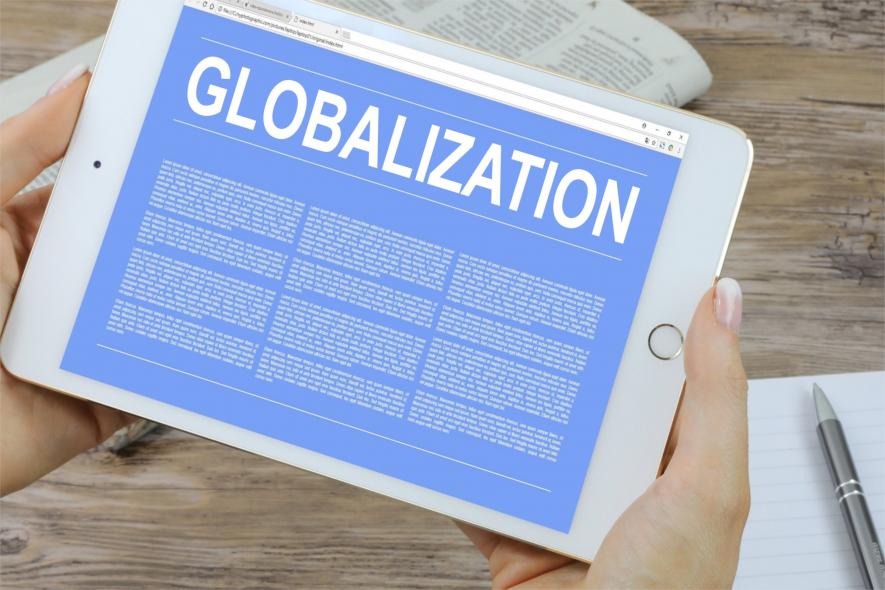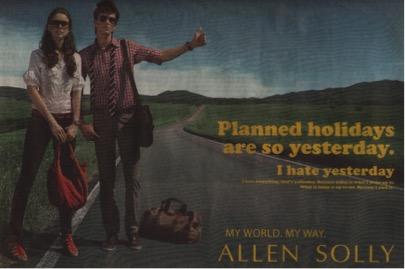New, Instant and Multiple as New Social Principles

Image Courtesy: Pix4free
The copy on a lingerie advertisement reads: “You turn twenty-three. Old enough to plot a surprise for him. You turn twenty-three. Old enough to think of life beyond him.”
Here are two interrelated possibilities—an anticipated desire for new clothes and accessories to plot a surprise or seduction and an anticipated journey to think independently by distancing from the expectations of the old and existing. The former throws a possibility of material newness, and the latter indicates the ease of ‘dispensability’. In both cases, the idea and act of ‘moving on’ are made to appear cool and attractive.
This advertisement provokes the customer to flirt with newness—new material possessions and partners. Planned obsolescence is the operative principle of the contemporary consumerist spree. Everything comes with a pre-determined expiration date. Today, technology and society do not conceive of making things that will last forever. In fact, the idea of forever is quite detrimental to “new and improved”. Moving on has been ingrained in the operative logic of consumption and consummation.

Central to consumerist encounters of the 21st century is the pace of purchasing and discarding. It defines and determines our relationship with commodities and other human beings. Conversely, the logic of dispensability that applies to the material world also applies to the interpersonal realm. It is indeed a perpetual search for new beginnings, where the possibility of any permanent settlement is passe.
There are invitations and constant reminders not to remain content and satisfied with the old and existing.
Perpetual restlessness and perennial craving for the “new” are indispensable to post-modern consumer identity. It keeps the engines of neo-liberal capitalism ever-mobile and constantly surging. Consider the Café Coffee Day tagline: “A lot can happen over coffee.” What can happen over coffee? A beverage commodity invites and opens up infinite possibilities—related to romantic encounters or professional aspirations. Something new and refreshing can happen anytime.
But all that is new today becomes too old, too soon. And that is true for things, relationships and preferences. The excitement of uncertainty, open-endedness of possibilities and instability of situations score over the monotony and domesticity of tried-out options.
The Now

In another advertisement by Allen Solly, a couple is stranded in a solitary landscape next to a highway, asking for a lift. The text reads: “Planned holidays are so yesterday. I hate yesterday. I hate everything that’s yesterday. Because today is what I wake up to. What is today is up to me. Because I own it.”
This is an example of the convergence of the new with another operative principle—the ‘now’.
Recount a Royal Stag tagline that announces, ‘Ab me sab dal do— pour everything into the moment.’
The annihilation of any past is essential to celebrate the instantaneous lived experience. In a plastic age of fluidity, the emphasis is often on constant change, chance, and not the monotony of permanence. The hedonist rush to act without thinking demands one lives and owns just this moment. In another advertisement for a motorcycle, when a protagonist who has just performed extraordinary stunts is asked, “How do you think you are going to get back?” he responds, “Thinking is such a waste of time.”
We are in an era of forgetting fast and excessive celebration of the present. All the attention is sought and centred around the present. In the short lifespan of commodities, desire and updates also become frivolous and short-lived. Every ‘new’ and ‘now’ fades too fast, sometimes even before we register their arrival and make way for the next.
The Multiple
It is a truism that the liberal market spoils one for choice. Millennials would find it impossible to imagine a nation of well over a hundred crores to have only the choice of a Fiat or Ambassador car, as it was until the late eighties. Every segment, every product, and every niche is now flooded with a multiplicity of choices.
The logic of multiplicity applicable to the material realm is also true in personal and professional life. We no longer enter a workplace believing we will retire in the same job. Few positions are tenured. We no longer enter a relationship, thinking it will last forever. Marriage does not rule out the possibility of divorce or extra-marital relationships. An excess of options or promiscuity of choices governs interpersonal domains.
Our personal lives have started to imitate the internal logic of consumption: desiring-exhausting-disposing, and then renewed craving for the new, now and the multiple. All offers are valid for a limited time as we search for better deals and bargains in the personal, professional and material world.
The permissive age of restless swiping, swapping, and scrolling is where we are very quickly bored—sometimes even before getting sufficiently interested. That is why one is not enough; we need most things in packages of multiples.
For example, sexual choice is not confined to the increasing list of dating apps. An airline advertisement states: “Sleep with your wife. Same day return flights from all metros.” It implies a desperate attempt to bring the husband home quickly to deny him the multiplicity of possibilities in another city. The ‘same day return’ feeds on and plays with the insecurities of monogamy.

The combination of newness, here and now, and multiplicity is the new social order that determines our choices, where we constantly flirt with commodities, images, and other individuals. It is easy to nurse moral judgements on the promiscuity of choice-making. But that does not take us anywhere close to finding meaning in the new social conditions that are the immediate consequences of liberalisation and globalisation.
What we see are manifestations of a frenzy of frivolousness. They also signal what our relationships with people, commodities and lived moments will be like.
The author is a sociologist with the Shiv Nadar University and author of Consumerist Encounters: Flirting with Things and Images. The views are personal.
Get the latest reports & analysis with people's perspective on Protests, movements & deep analytical videos, discussions of the current affairs in your Telegram app. Subscribe to NewsClick's Telegram channel & get Real-Time updates on stories, as they get published on our website.
























